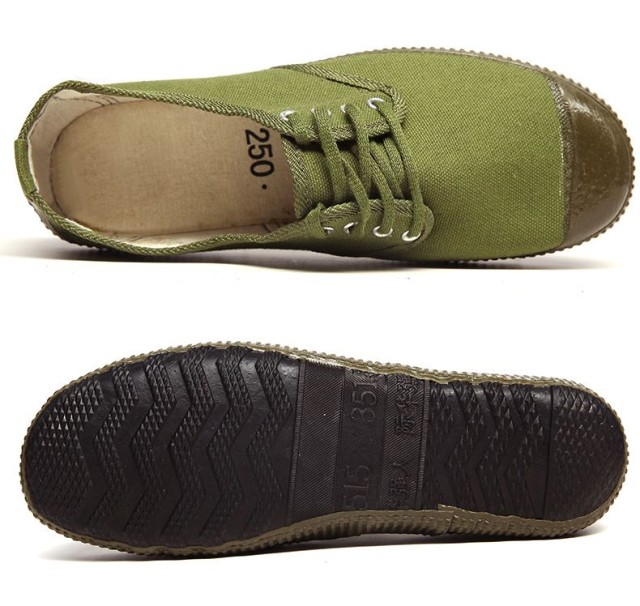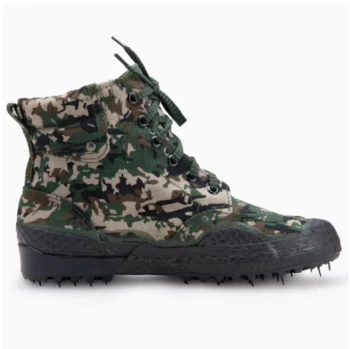Vulcanized shoes have become a staple in footwear due to their unique blend of durability, flexibility, and style. Whether you're an athlete, industrial worker, or fashion enthusiast, understanding the science and benefits behind vulcanization can help you make informed purchasing decisions. This guide explores the technology, applications, and selection criteria for vulcanized footwear.
Understanding Vulcanized Footwear Technology
The Science Behind Vulcanization: From Rubber to Resilience
Vulcanization is a chemical process that transforms natural rubber into a more durable, elastic material. By heating rubber with sulfur, the molecular structure becomes cross-linked, enhancing strength and resistance to wear. This method largely eliminates the need for adhesives, creating a seamless bond between the sole and upper material.
Key advantages of vulcanized shoes include:
- Superior durability: The cured rubber resists cracking and deformation.
- Enhanced flexibility: Allows natural foot movement, ideal for dynamic activities.
- Water resistance: Vulcanized soles repel moisture better than non-treated rubber.
Research shows that vulcanized rubber can withstand repeated stress without losing its shape, making it a preferred choice for long-term use.
Key Advantages: Durability, Flexibility, and Water Resistance
Vulcanized shoes excel in performance-driven scenarios:
- Durability: The cross-linked rubber structure resists abrasion, extending the shoe’s lifespan.
- Flexibility: Athletes and workers benefit from the natural board feel, which improves agility.
- Water resistance: While not fully waterproof, vulcanized soles outperform non-treated rubber in wet conditions.
Have you considered how these properties could enhance your daily activities?
Popular Categories of Vulcanized Shoes Beyond the Basics
Athletic Performance: Vulcanized Sneakers in Sports
Vulcanized sneakers are favored in skateboarding, basketball, and running due to their lightweight construction and grip. The flexible sole allows for better ground feedback, crucial for precision movements.
Industrial Use: Safety Boots with Vulcanized Outsoles
In industrial settings, vulcanized safety boots provide slip resistance and durability. The heat-treated rubber withstands oil, chemicals, and heavy wear, making them a reliable choice for laborers.
Fashion Meets Function: Retro Canvas Styles
Vulcanized shoes like classic sneakers blend aesthetics with practicality. The thin, flexible sole complements casual outfits while offering all-day comfort.
Choosing the Right Vulcanized Shoes
How to Identify Quality Vulcanization in Production
Look for:
- Seamless bonding: No visible glue lines between the sole and upper.
- Uniform texture: High-quality vulcanized rubber appears smooth and consistent.
- Reinforced edges: Prevents premature wear in high-stress areas.
Use Case Matching: From Hiking to Urban Fashion
- Outdoor activities: Opt for thicker vulcanized soles with deep treads.
- Urban wear: Lightweight vulcanized sneakers prioritize style and comfort.
- Work boots: Ensure the outsole meets industry safety standards.
Upgrade Your Footwear Collection with 3515’s Vulcanized Solutions
For distributors, brand owners, and bulk buyers, 3515 offers a diverse range of vulcanized footwear designed for performance, safety, and style. Our expertise ensures every pair meets the highest standards of durability and comfort.
Ready to elevate your inventory? Partner with 3515 for premium vulcanized shoes that deliver unmatched value.
Related Products
- Durable Rubber Sole Outdoor Shoes Wholesale & Custom Manufacturing
- Wholesale High-Traction Camo Boots - Custom Manufacturer for Brands
- Wholesale Durable Camo Canvas Shoes with High-Traction Rubber Soles
- Durable Rubber-Soled Utility Shoes for Wholesale & Custom Brand Manufacturing
- Durable Canvas Work Shoes with Rubber Lug Sole | Wholesale Manufacturer
Related Articles
- Why Vulcanized Soles Dominate Technical Skateboarding: A Science and Performance Breakdown
- How Vulcanized Soles Became the Unsung Hero of Urban Footwear Culture
- How Vulcanized Rubber Work Boots Outlast Alternatives – And When to Choose Differently
- Vulcanized Shoes Decoded: When They Shine and When to Choose Alternatives
- How Vulcanized Rubber Powers High-Performance Applications Across Industries



















